Send us a Message
- Destinations
- Tours
- By Destinations
- By Themes
- Suggested Combination
- Duration
- About Us
- Reviews
A valid passport with at least 6 months’ validity is required for entry into Indonesia, including Bali. Citizens of many countries enjoy visa-free entry for short stays of up to 30 days, strictly for tourism purposes and not extendable. For longer stays, travelers can apply for a Visa on arrival (extendable once for an additional 30 days) or an e-visa in advance. Always confirm the latest visa regulations with our travel consultants before traveling.

No mandatory vaccinations are required for entry to Bali. However, vaccinations for hepatitis A & B, typhoid, and tetanus are commonly recommended. Dengue fever can occur, especially during the rainy season, so mosquito protection is advised. Comprehensive travel insurance covering medical emergencies, accidents, and theft is strongly recommended. Tap water is not safe to drink—bottled or filtered water should always be used.
The standard voltage in Bali is 230V, 50Hz, using European-style two-pin plugs (Type C and F). A universal travel adapter is recommended for convenience. Power supply is generally stable in urban and tourist areas, though occasional outages may occur in rural villages or during storms.
The official currency is the Indonesian Rupiah (IDR). Cash is essential for small purchases, especially in markets and local shops. ATMs are widely available in towns and tourist areas, dispensing Rupiah only. Major hotels, restaurants, and boutiques accept credit cards, but cash remains more practical for daily expenses. Money changers are common—use only reputable services and check rates carefully.
Bali operates on Central Indonesia Time (GMT +8). Government offices usually open from 8:00 a.m. to 4:00 p.m., Monday through Friday. Banks often close by mid-afternoon. Shops, cafés, and restaurants generally stay open until late evening, while nightlife venues in areas such as Seminyak, Canggu, and Kuta can operate until early morning hours.
Bali has no rail system, and domestic flights are mostly used for connections to other Indonesian islands. On the island, transport options include taxis, ride-hailing apps like Grab and Gojek, private drivers, and rental scooters. Traffic congestion is common, especially in southern Bali, so plan extra travel time. For day trips, hiring a car with a driver is the most convenient way to explore.
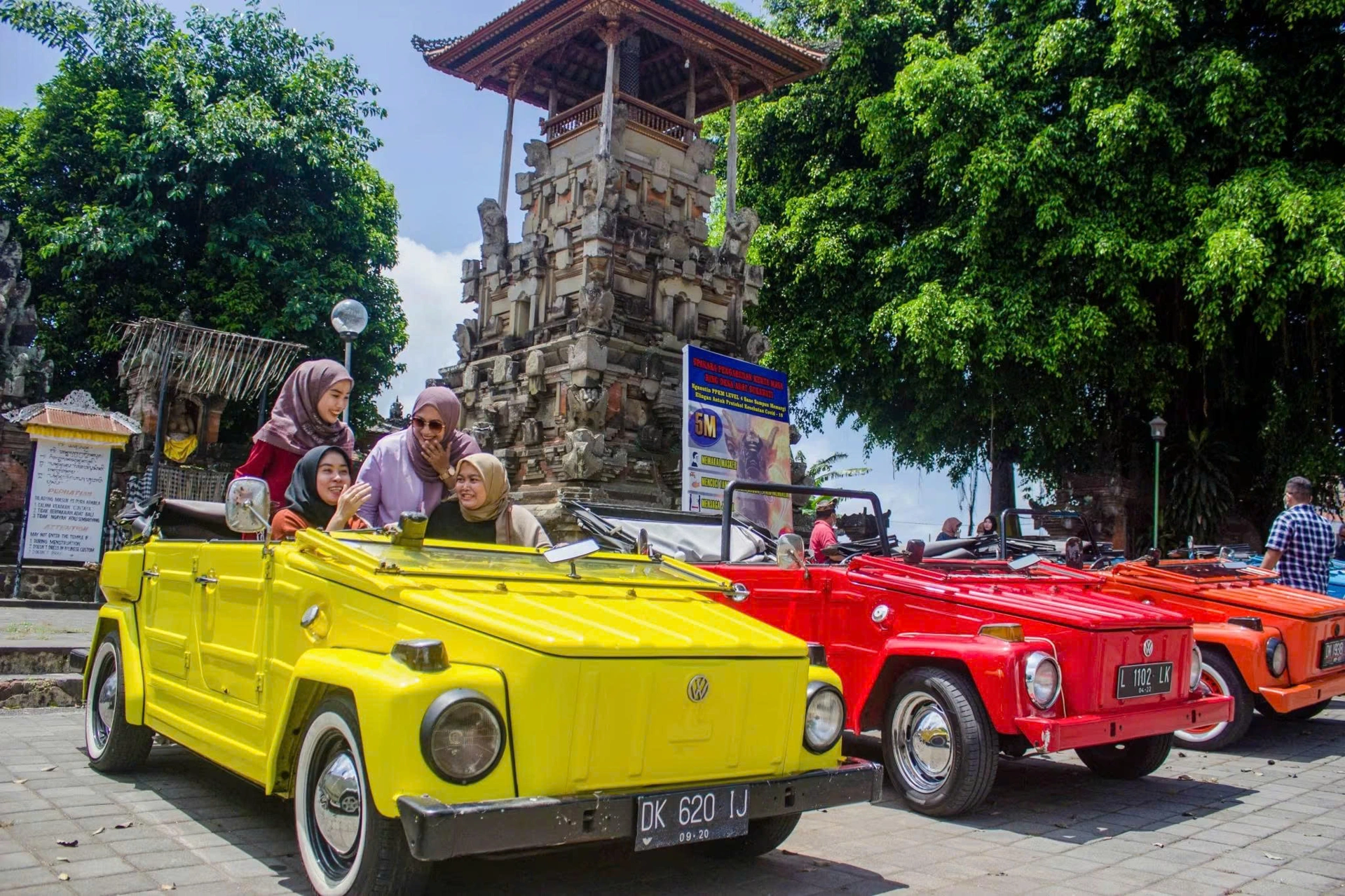
Wi-Fi is widely available in hotels, restaurants, and cafés, especially in tourist hubs. Many visitors also purchase prepaid SIM cards from providers such as Telkomsel or XL, which offer affordable data packages and reliable coverage across most of the island. While connectivity is strong in urban and coastal areas, it may be weaker in mountainous or remote regions.
Post offices exist across Bali, though international couriers and hotel business centers are often more efficient for sending parcels abroad. Prepaid SIM cards are the most practical option for calls and internet. International calling apps such as WhatsApp, Skype, and Zoom are widely used and supported by good mobile data networks.
Bali has a tropical climate with warm temperatures year-round, ranging from 26°C to 32°C. The dry season (April to October) brings sunny, less humid weather, making it ideal for outdoor activities, beaches, and festivals. The wet season (November to March) is marked by higher humidity and afternoon showers, which keep the landscapes lush and green. The most comfortable period for travel is typically from May to September.
Balinese culture is deeply rooted in Hindu traditions. Visitors should dress modestly when entering temples—covering shoulders and legs, with sarongs often required. Shoes must be removed before entering sacred spaces. Public displays of affection should be kept subtle, and respect for religious ceremonies is essential. Always use your right hand when giving or receiving items, and avoid touching people’s heads, as this is considered impolite

Vietnam is a country full of history, culture, and natural beauty, offering unforgettable experiences for every type of traveler. From bustling cities and ancient temples to serene countryside and pristine beaches, there is something for everyone. With careful planning, attention to local customs, and consideration for dietary or religious needs, Israeli travelers can enjoy a safe, enriching, and memorable journey.

Balinese cuisine is a vibrant reflection of the island’s culture, shaped by its Hindu heritage, fertile volcanic soils, and abundant spices. Meals are a harmonious balance of flavors spicy, savory, sweet, and aromatic—brought together through fresh herbs, coconut, peanuts, and chili-based spice pastes known as bumbu. Rice is the centerpiece of most meals, complemented by grilled meats, seafood, and an array of vegetable dishes. Many recipes are deeply rooted in ceremonial traditions, often served during temple festivals and family gatherings, making Balinese food not only a culinary delight but also a cultural journey.
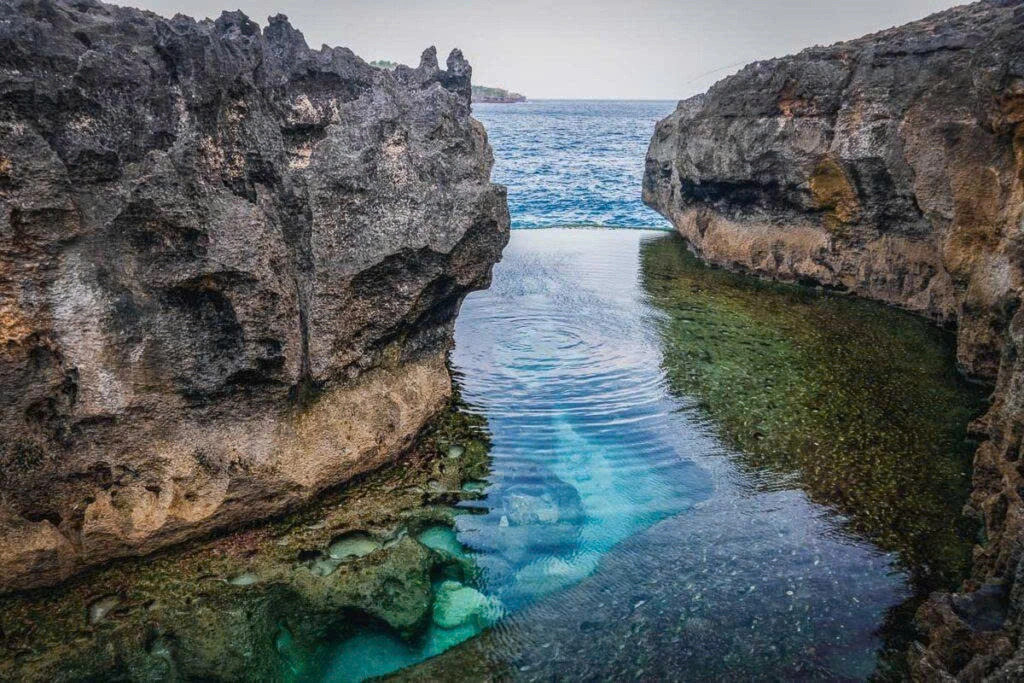
Nusa Penida is a stunning island off Bali’s southeast coast, famed for its rugged cliffs, crystal-clear waters, and dramatic landscapes. Highlights include Kelingking Beach with its dinosaur-shaped headland, Angel’s Billabong, and Broken Beach. Popular for snorkeling and diving, the island offers encounters with manta rays and vibrant coral reefs, making it a paradise for adventure and nature lovers.
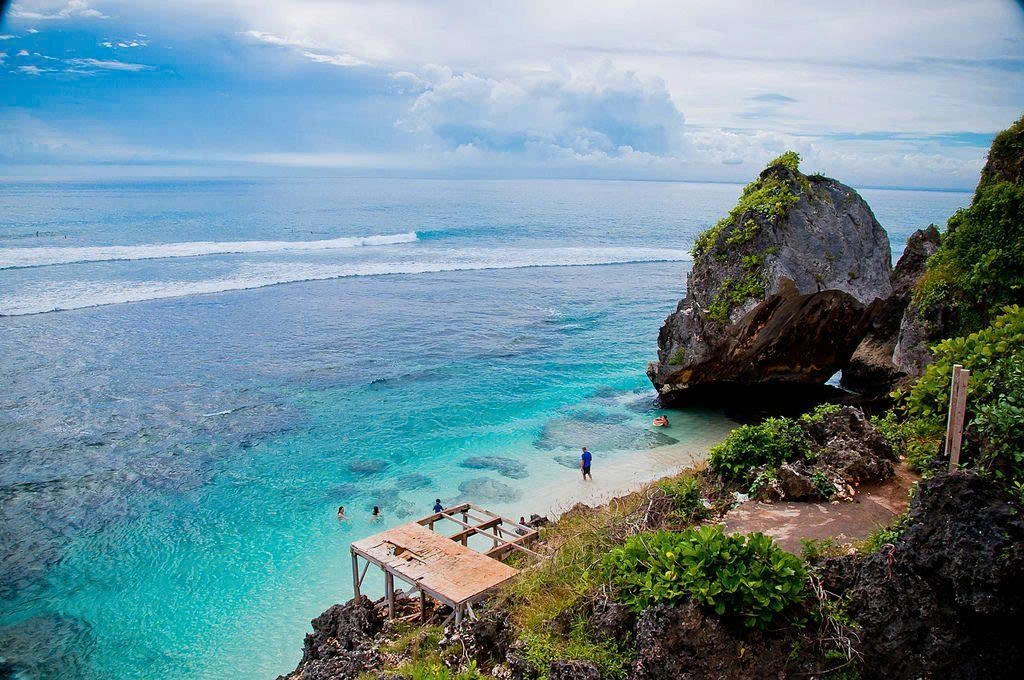
Uluwatu is renowned for its dramatic sea cliffs, world-class surf breaks, and breathtaking ocean views. At its heart lies the iconic Uluwatu Temple, perched high above the waves and famous for sunset Kecak dance performances. With luxury resorts, hidden beaches, and a relaxed coastal vibe, Uluwatu is a perfect blend of culture, adventure, and natural beauty.
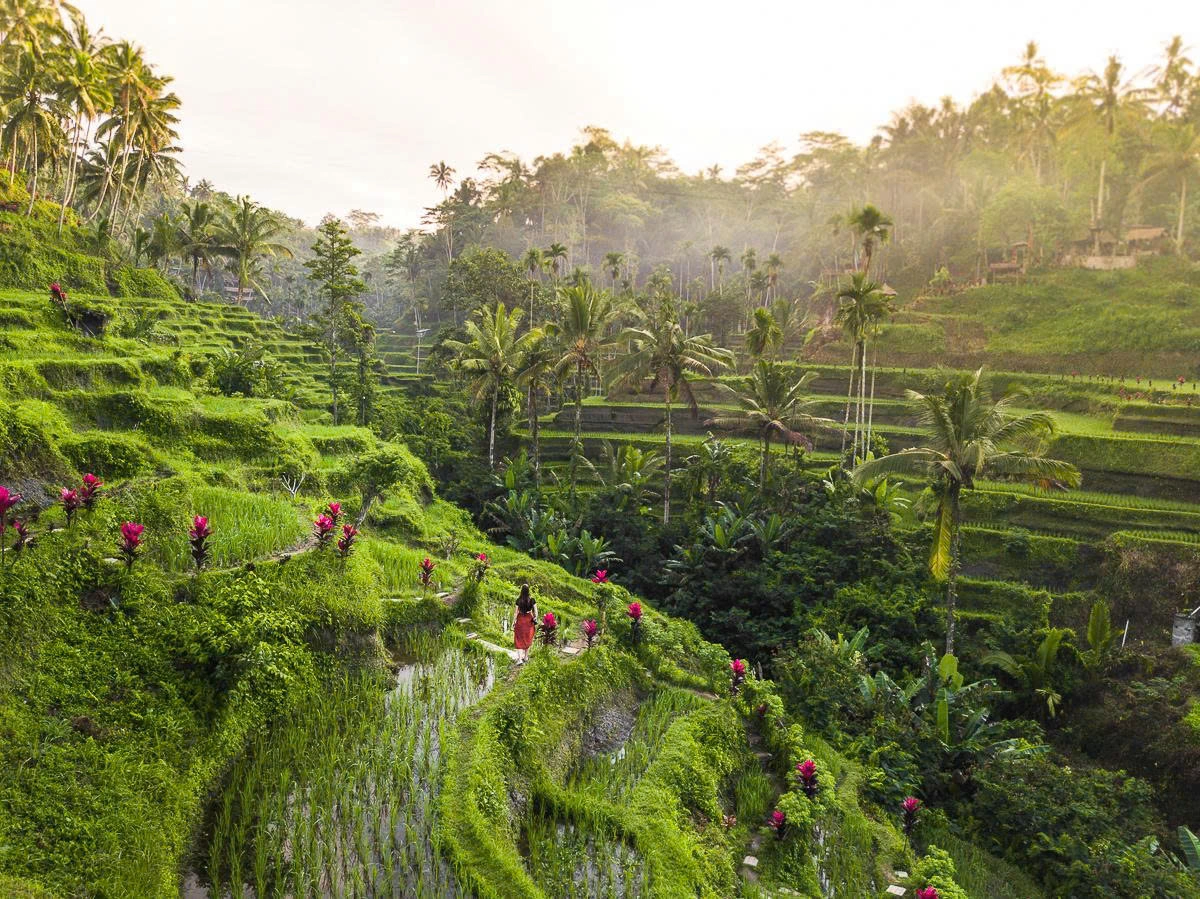
Ubud is the cultural and spiritual heart of Bali, surrounded by rice terraces, lush forests, and traditional villages. Known for its art, dance, and handicrafts, it’s also a hub for yoga, wellness, and spiritual retreats. With its temples, galleries, and serene landscapes, Ubud offers a deeper connection to Balinese heritage and nature.
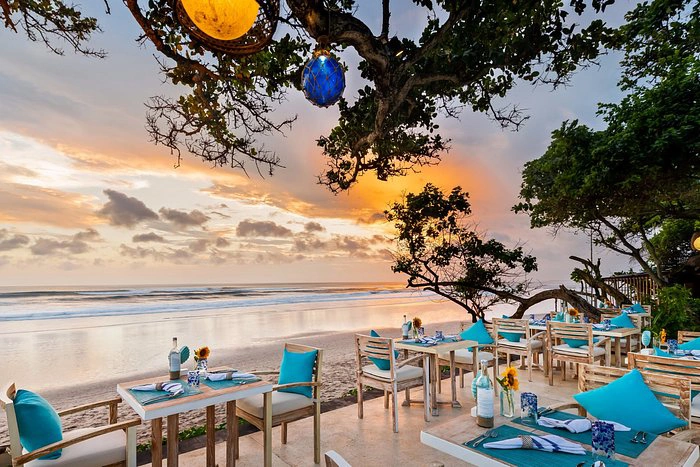
Seminyak is Bali’s upscale beach destination, famous for its luxury resorts, chic boutiques, and stylish beach clubs. The area combines golden beaches and stunning sunsets with a vibrant dining and nightlife scene. Offering a more sophisticated atmosphere than nearby Kuta, Seminyak is perfect for travelers seeking both relaxation and elegance.
Preparing for your upcoming trip to Asia?
Let us know what we can arrange for you!